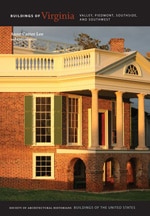You are here
House (Fairview District Home)

This building in the rolling countryside west of Dublin, now converted into a residence, was the third consolidated almshouse constructed by the commonwealth for the poor and disabled. The T-shaped, two-story, red brick building has a nine-bay facade with a projecting central pavilion fronted by a two-story gable-roofed porch. A similar porch projects from the eastern end of the main block. The home epitomized theories of social welfare that the commonwealth's Board of Public Welfare had advocated since the Progressive Era. The institution stressed advanced nutritional and hygienic standards. Racial and gender segregation policies were followed for its fifty-five inhabitants. New developments in state and federal welfare legislation in the post–World War II era rendered the district home largely obsolete. By the mid-1970s Fairview moved to a modern facility on the property, and the old home became a private residence in 1989.
Writing Credits
If SAH Archipedia has been useful to you, please consider supporting it.
SAH Archipedia tells the story of the United States through its buildings, landscapes, and cities. This freely available resource empowers the public with authoritative knowledge that deepens their understanding and appreciation of the built environment. But the Society of Architectural Historians, which created SAH Archipedia with University of Virginia Press, needs your support to maintain the high-caliber research, writing, photography, cartography, editing, design, and programming that make SAH Archipedia a trusted online resource available to all who value the history of place, heritage tourism, and learning.

